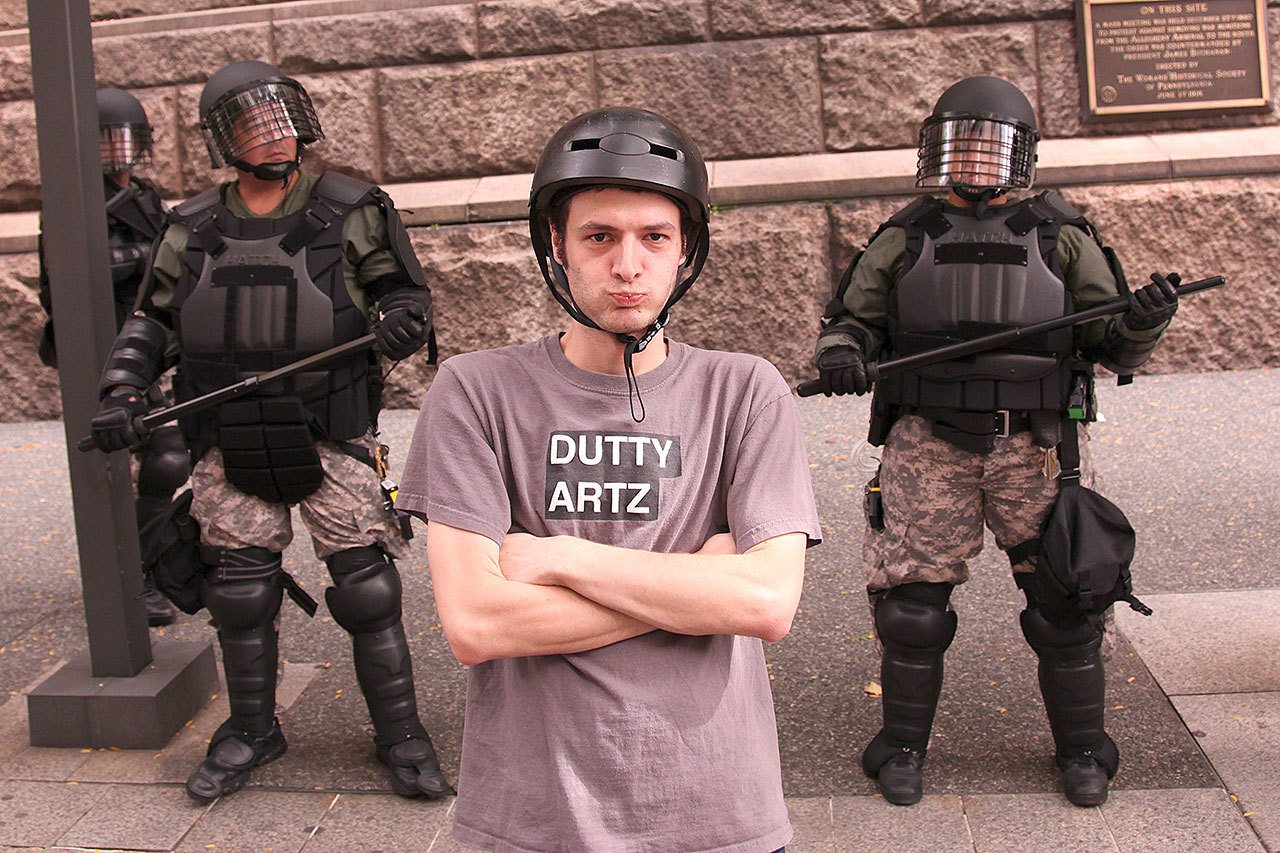By Anya Litvak
Pittsburgh Post-Gazette
Working in factories taught Paolo Pedercini nothing.
For several summers in his late teens, Pedercini reported to work in various manufacturing plants in his native northern Italy to make swimming pools and plastic car parts. He worked mostly alone; interaction was limited by workstation design and noise.
If others tout their roots in the factory before ascending to the corporate suite, Pedercini is having none of it. Not the romanticized value of rote, physically draining work, and not the ideal of rising through the ranks to management while humbly keeping the blue collar in the back pocket.
He is an artist whose medium is subversive video games that eviscerate capitalism. His job is teaching media production and experimental game design at Carnegie Mellon University.
He’s not inclined to use his factory days as street cred for raging against the machine. “They were all extremely stupid jobs,” he said.
While any job is better than no job, he said, “It was very automated type of work. So, you’re kind of keeping up with the machines.”
Pedercini was 22 when he launched Molleindustria, a game development venture with a name that roughly translates as soft factory. That was 2003.
“At that point, nobody was doing socially engaged work in the field of video games,” he said.
In his video game designs, Pedercini plays with factories as centers of efficiency and control — and not in a good way.
In “To Build a Better Mousetrap,” the player must distribute his worker mice between research and production, figure out how much to pay them to keep them from organizing, all while developing the ways to make them obsolete.
“Phone Story,” a game designed to be played on smartphones, traces the creation of an iPhone starting with children mining minerals in the Democratic Republic of the Congo at gunpoint and then to the Chinese factories where the devices are assembled.
One sequence has the player hustle a net across the screen to catch suicidal workers — a play on the Atari game where a bar at the bottom is used to bounce a ball into a stack of bricks. It’s a reference to the Foxconn factory in Shenzhen, China, where more than two dozen workers have fallen from windows to their deaths in recent years.
When you lose “Phone Story,” the game-over message is: “Don’t pretend you’re not complicit.”
All the games at Molleindustria.org are free, relatively short, and socially conscious. None are subtle.
In launching his label 13 years ago, Pedercini’s manifesto said: “Molleindustria doesn’t like video games, for this very reason it creates them.”
He believes most video games, from Tetris to Civilization to Farmville, are exercises in management: allocation of resources and swatting of obstacles in pursuit of a single outcome.
Like factory production, games are oriented toward a goal. The best games are considered to be those where each variable introduced to the player has its place in the achievement of that goal.
That leaves little room for creativityor discovery in either scenario.
His topics form “theoretical explorations,” he said. Like when his recent experience buying a house inspired his latest game, Nova Alea, about financial speculation and gentrification. It’s an adventure in flipping houses and displacing people.
When he hears the forlorn rhetoric of politicians pledging to bring factory jobs back to America, Pedercini wonders: Why?
“I don’t think the problem is to bring (back) manufacturing jobs, but rather to redistribute the amount of labor in society based on the fact that because of automation, you’re able to do that,” he said.
“It’s kind of like rethinking what a job is and how much time in a day” one should spend doing it, he said.
Talk to us
> Give us your news tips.
> Send us a letter to the editor.
> More Herald contact information.

























